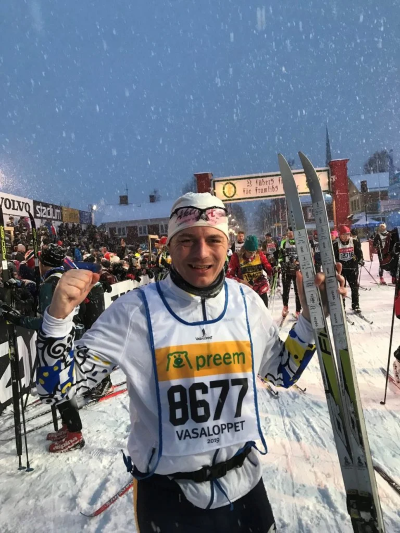Rapid advances in medical technology have changed the way that diagnoses such as diabetes type 1 impact patients’ lives. Åsa Brolin is the brand manager for Alleima, a leading provider of medical wire components for a range of devices, including continuous glucose monitors. Åsa grew up with her two siblings, Karin and Martin, who were diagnosed with type 1 diabetes in childhood.
Martin was diagnosed at age 12 and Karin at 3. Today, it’s easy for parents and caregivers to monitor a child’s blood sugar levels with the use of CGMs and mobile devices, but this was a different story for previous generations.
“We had finger-prick tests that my mother did for me,” Karin explains. “We couldn’t check at school, where I couldn’t do it by itself, only before and after school, so I didn’t know during the whole day what my blood sugar level was.”
Together Åsa, Karin, and Martin have witnessed first-hand the incredible steps forward that the medical technology industry has made.
“When they were kids, it sorts of regulated our daily life,” Åsa explains. “We have always traveled, and sometimes that could be a challenge as every meal needed to be planned.
“I’ve seen the developments since then: now you can have an almost normal life, at least from my perspective. I know that it affects their lives, of course, but you don’t have to organize your day around the condition. You can have more control.”
Managing active lifestyles with type 1 diabetes
People diagnosed will take different types of insulin at different times of the day. Long-acting, background or basal insulin is taken once or twice daily to keep blood glucose stable overnight and between meals. Fast-acting, mealtime, or bolus insulin is taken with food or drink to reduce the rise in blood glucose caused by eating or drinking.
“Now that I have my insulin pump, it gives me insulin continuously, around the clock,” Karin explains. “It’s much easier during the day; you don’t have to have these fixed meals or routines.”

Karin has an insulin pump and a CGM which has helped her to maintain an active lifestyle, including outdoor activities such as kayaking, hiking, biking, and skiing. The CGM was also integral whilst she was pregnant with her son, as during this time mothers kept even stricter control over their blood sugar to avoid consequences for the baby.
Martin has a CGM which has enabled him to participate in Vasaloppet, a historic annual Swedish skiing race over 90 km long, as well as run marathons. Long-term exercises such as these could otherwise be very challenging for people with type 1 diabetes because it inhibits their ability to transform sugar into energy.
According to Martin: “It’s not just about active lifestyles, but also our working and social lives. You have less equipment to carry around, so it makes it easier to enjoy socializing. If you’re stuck in a meeting, you can check your sugar level easily without having to go out.”

Alleima has designed and developed customized medical wire components for devices such as CGMs, as well as heart rate monitors, pacemakers, and cochlear implants. With expertise and ongoing research into metallurgy, processes such as galvanization and coatings, and extensive experience in finding the ideal configuration for OEM applications, we are a one-stop shop for medical wire components.
